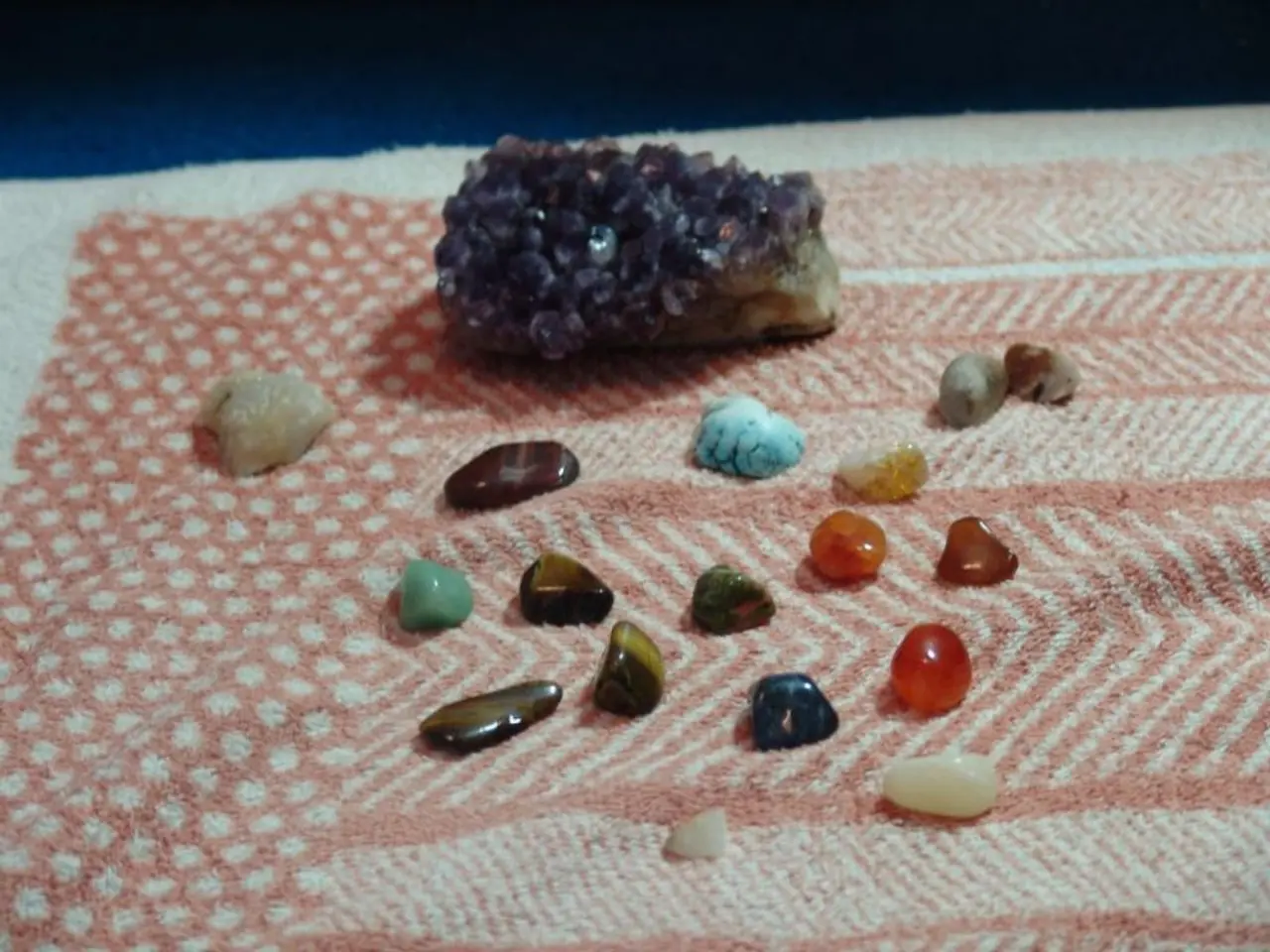Is the surgical removal of the gallbladder necessary and when would that occur?
Gallbladder removal, or cholecystectomy, is a common surgical procedure that is often recommended for patients with gallstones, particularly when they cause symptoms or complications. According to recent European guidelines, prompt surgery is essential to prevent further issues.
Gastroenterologist Olga Panes, in response to a question about the removal of the gallbladder when there are stones present, emphasizes the importance of a personalized approach in medicine for successful patient treatment.
If a patient experiences symptoms such as pain under the shoulder blade or under the ribcage, the gallbladder should be removed. However, according to European recommendations, if there's no discomfort, the gallbladder shouldn't be touched. This is based on the fact that the liver, often referred to as a "cleansing station" anatomically, does not require additional inputs from the body if one leads a healthy lifestyle. The digestive tract, with enough fiber, beneficial substances in the diet, and proper nutrition, does not need external help.
The European Association for the Study of the Liver (EASL), the German S3 guideline, the European Society of Gastrointestinal Endoscopy (ESGE), and the Tokyo Guidelines all recommend cholecystectomy under specific circumstances. For instance, the EASL advises cholecystectomy within 72 hours after endoscopic removal of bile duct stones (ERCP) for gallstones. The ESGE suggests the surgery within 14 days after ERCP, while the Tokyo Guidelines recommend cholecystectomy within one week for acute cholecystitis.
The surgery is indicated to prevent recurrence of stones and bile duct complications and is relatively safe with favorable outcomes. It's important to note that liver and bowel cleansing, as promoted by some health enthusiasts and biohackers, can lead to surgery. Additionally, liver and bowel cleansing is not based on evidence-based medicine.
Some colleagues claim that the gallbladder should be removed in 100% of cases with gallbladder stones. However, Olga Panes believes in a more nuanced approach, considering each patient's unique circumstances.
In cases of X-ray-positive gallbladder stones, which are a large amount of dense content, they may not pass and require medical consideration. There's a common practice of dissolving X-ray-negative gallbladder stones with certain medications that improve bile composition.
In conclusion, cholecystectomy is necessary for symptomatic gallstones, especially after common bile duct stone removal, and European guidelines emphasize performing the surgery promptly (within days to two weeks) after ERCP to minimize further complications. The indication is also strong for gallbladder polyps causing symptoms or if there are other complications like acute cholecystitis. Always consult with a healthcare professional for personalised advice.
[1] European Association for the Study of the Liver (EASL), European Society of Gastrointestinal Endoscopy (ESGE), German S3 guideline, Tokyo Guidelines [2] Olga Panes, personal communication, 2021 [3] Some colleagues, personal communication, 2021 [4] European Association for the Study of the Liver (EASL), European Society of Gastrointestinal Endoscopy (ESGE), German S3 guideline, Tokyo Guidelines [5] European Association for the Study of the Liver (EASL), European Society of Gastrointestinal Endoscopy (ESGE), German S3 guideline, Tokyo Guidelines
- A personalized approach in medicine is crucial for successful patient treatment, asserts gastroenterologist Olga Panes.
- Science and medical-conditions like chronic diseases, such as chronic kidney disease, cancer, and cardiovascular health, often require individualized therapies and treatments.
- The role of nutrition in maintaining health and wellness, including fitness and exercise, mental health, and cardiovascular health, cannot be overstated.
- The European Association for the Study of the Liver (EASL), the German S3 guideline, the European Society of Gastrointestinal Endoscopy (ESGE), and the Tokyo Guidelines all emphasize the importance of nutrition and proper diet in managing various health conditions.
- The lived experience, eschewing evidence-based medicine, practices like liver and bowel cleansing can lead to unnecessary surgeries, despite their widespread popularity among health enthusiasts and biohackers.
- In the case of X-ray-positive gallbladder stones, a large amount of dense content, they may not pass and necessitate medical intervention, while X-ray-negative gallbladder stones can be treated with certain medications that improve bile composition.





